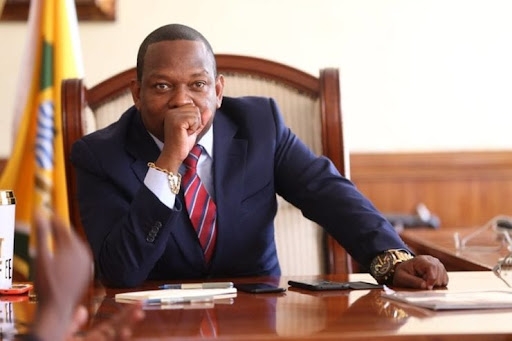

A Nairobi court has thrown out an application by an accused person seeking to have a magistrate recuse herself from hearing his ongoing criminal case, terming the move a ploy to intimidate the bench and stall proceedings.
Chief magistrate Dolphina Alego of the Milimani law courts,
dismissed the recusal bid filed by Andrew Kirungu, who is the first accused in
the case.
Kirungu had sought to have the matter reassigned to another
magistrate, citing bias.
In her ruling, Alego described the application as
“speculative, unsubstantiated, and deliberately timed to derail justice.”
She noted that the claims arose only after the prosecution
had closed its case and the accused had been placed on his defence.
“Was the court expected to acquit at this stage?” the
magistrate posed, questioning the motive behind the application.
The defence had accused the magistrate of exhibiting bias
through her “writings, body language, and conduct,” and claimed the case had
been prejudiced by its mention in Parliament and media reports.
The court, however, rejected the claims, terming them “a
narrative built on conjecture and paranoia.”
She recalled that the court had previously accommodated the
accused, including reducing his bond on humanitarian grounds due to ill health,
only to now face what she termed an attempt to intimidate the bench.
She also questioned why the application was made by only one
of the two accused persons, saying the selective approach suggested ulterior
motives.
Kirungu had been charged alongside former provincial
commissioner Nathan Chelogoi with fraudulent acquisition of a Sh1.3 billion
land belonging to tycoon Ashok Doshi.
They pleaded not guilty to six counts of fraud, conspiracy
to defraud, and forgery and were released on bond.
The magistrate said her ruling relied on established
principles guiding judicial recusal, citing the Judicial Service (Code of
Conduct and Ethics) Regulations, 2020, which require withdrawal only in
specific situations such as where a judicial officer is a party or witness in
the case.
She further referenced key precedents, including the Kenyan
case of Philip K. Tunoi & another v Judicial Service Commission and the
South African case President of the Republic of South Africa and Others v South
African Rugby Football Union, which define the test for bias as whether a
“reasonable, objective and informed person” would apprehend partiality.
Acknowledging that “absolute neutrality” is impossible, the
magistrate emphasized that judges must instead maintain “judicial
impartiality.”
Alego condemned the application as “an affront to the
independence of the judiciary” and reaffirmed her duty to uphold her oath of
office.
“The application is
properly executed to intimidate,” she stated, adding that judicial officers
must not yield to such tactics.
She also referred to her recent promotion to Chief
Magistrate and nomination for judicial awards, rhetorically asking whether
those recognitions too had been “compromised” as alleged by the defence.
With the application dismissed, the court moved to schedule
the continuation of the defence hearing.
By consent of all parties, the cross-examination of the first
accused was set for October 16, 17, and 18.
The case will now proceed to the defence stage, bringing the
long-running trial closer to conclusion















